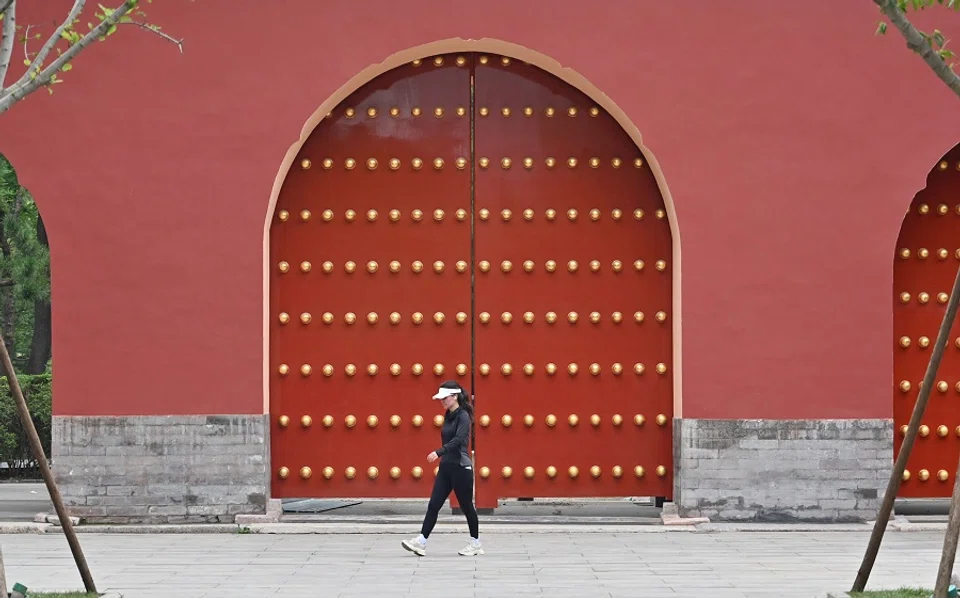ThinkChina editor: ‘What better time to cover China than today?’
As ThinkChina celebrates its fifth year, editor Chow Yian Ping shares her thoughts on the portal’s journey thus far. She remembers the people who have helped China’s stories come alive and looks forward to the next lap — just five years in, there is still so much road to travel.

ThinkChina is five.
Launched in late September 2019 with a small editorial team of four, ThinkChina has thrived with the support of over 400 colleagues from Singapore’s Chinese-language newspaper, Lianhe Zaobao.
At our inception, China was widely regarded as a burgeoning global powerhouse, and there was significant interest in news and insights about this rising Asian giant. Lianhe Zaobao, operating in English-dominant Singapore, has always boasted a team of bilingual journalists proficient in both English and Chinese. This linguistic capability allows them to engage directly with local sources and access a wide range of publications and information from Greater China, including mainland China, Hong Kong and Taiwan.
These journalists are adept at conducting in-depth reporting on Chinese-speaking communities while maintaining a nuanced understanding of the geopolitical landscape. Their Singapore background adds an additional layer of sensitivity to their reporting, reflecting Singapore’s position as a multiracial, cosmopolitan city-state in Southeast Asia.
Hence, the creation of ThinkChina was a natural and pragmatic decision, born from the desire to leverage Lianhe Zaobao’s strengths and share its insights with Singaporeans who may not be proficient in Chinese, as well as with the broader region and the world.
However, the journey has been challenging. The onset of Covid-19, the intensification of US-China tensions, and the polarised global situation have all impacted our work. In such turbulent times, everyone is made to take sides, and even governments face criticism for their positions. For a platform like ours, focused on China, these challenges have been particularly pronounced.
In curating our content, the ThinkChina team is committed to presenting multiple perspectives. This commitment stems from both professional standards and a genuine curiosity about diverse viewpoints. If a writer from mainland China opines on a topic in this manner, what about someone from Taiwan or Japan? What about an academic or expert living in the Philippines, India, Mexico, or even Kazakhstan? Indeed, we have writers from all these places!
Working with our writers has been a joy. ThinkChina’s assistant editor, Charlene Chow, and I have thoroughly enjoyed brainstorming topics with our long-time contributors, eagerly reaching out to new writers, and feeling gratified when a writer responds positively or even visits us in Singapore.
While we draw from Lianhe Zaobao’s pool of opinion writers, we also actively seek new voices to address information gaps and feed our ongoing quest for insights about China — an ever-relevant subject in today’s world.

Some of our discerning readers may notice that many of our articles are translated. In fact, they are not only translated from Chinese but also from Japanese. Over these five years, we owe a debt of gratitude to our translators and copy editors — Candice Chan, Grace Chong, Josephine Hong and James Loo — as well as our freelance translators and Japanese coordinator, for their meticulous work. Translating our thought pieces is no easy task!
Sometimes, readers ask: why not ThinkAsia? If we had the resources and talents — individuals proficient in various Asian languages who are also willing to be journalists — why not? Singapore may be a small city-state, but it is deeply connected to the rest of the world, and global events impact us significantly.
We have also received varied feedback: some readers view us as pro-China, while others see us as pro-US. We’ve faced harsher criticisms from those who happened to read one or two of our articles that, fortunately or unfortunately, went viral. It takes a strong heart to navigate this line of work.
But we are fortunate to be doing this. What better time to cover China than today? And what better location than cosmopolitan Singapore, right in the middle of Southeast Asia — neither too far from nor too close to the Asian giant?
We are grateful to everyone who has supported us on this journey, especially our contributors from around the world who have entrusted us with their articles. Thank you, contributors!

We also want to thank our loyal readers, many of whom have been with us for the past five years and have seen us evolve. In our fifth year, we’ve collaborated with the tech, product, and design teams to create a new website design, set to launch by the end of the year. We hope you will like it.
Additionally, we’ve expanded our content offerings. We‘ve launched a regional series starting with China’s Dongbei (northeast) region; new videos such as vox pops and animated explainers; and a photojournalism series delving into Chinese society, starting with families and individuals passionate about breaking — a new dance sports category at the Paris Olympics. Of course, we continue to offer our core content of in-depth reads and opinions about China.
None of this would have been possible without the support of our colleagues in tech, marketing, design and product over the past five years. We are deeply grateful for their generous contributions. Special thanks to Loh Woon Yen, our managing editor, who has expertly bridged our team with these essential support departments.
Finally, we are thankful that the original team of four who started the website has remained intact and has been joined by four more members over the years, including video colleagues Yi Jina and Lu Lingming, who are bringing dynamic visuals to our site.
Five years may seem short for a project like ours, and there is still much to do. While we’re constantly discussing, tweaking and shaping the future of ThinkChina, the future often surpasses our imagination. And that’s what makes it all the more exciting.



![[Big read] When the Arctic opens, what happens to Singapore?](https://cassette.sphdigital.com.sg/image/thinkchina/da65edebca34645c711c55e83e9877109b3c53847ebb1305573974651df1d13a)
![[Video] George Yeo: America’s deep pain — and why China won’t colonise](https://cassette.sphdigital.com.sg/image/thinkchina/15083e45d96c12390bdea6af2daf19fd9fcd875aa44a0f92796f34e3dad561cc)
